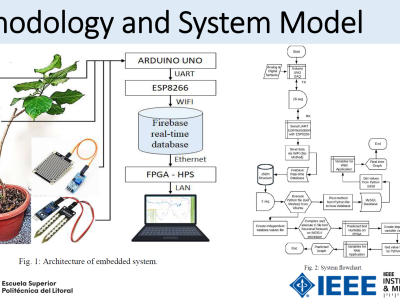Codes of paper: AI-based Resource Allocation in End-to-End Network Slicing under Demand and CSI Uncertainties
- Citation Author(s):
-
Amir Gharehgoli (Tarbiat Modares University (TMU))Ali Nouruzi (TMU)Nader Mokari (TMU)Paeiz Azmi (TMU)Mohamad Reza Javan (Shahrood University of Technology)Eduard Jorswieck (TU Braunschweig, Department of Information eory and Communication Systems)
- Submitted by:
- ali nouruzi
- Last updated:
- DOI:
- 10.21227/4jps-kt78
- Data Format:
 1729 views
1729 views
- Categories:
- Keywords:
Abstract
Abstract—Network slicing (NwS) is one of the main technologies
in the h-generation of mobile communication and
beyond (5G+). One of the important challenges in the NwS
is information uncertainty which mainly involves demand
and channel state information (CSI). Demand uncertainty is
divided into three types: number of users requests, amount
of bandwidth, and requested virtual network functions workloads.
Moreover, the CSI uncertainty is modeled by three
methods: worst-case, probabilistic, and hybrid. In this paper,
our goal is to maximize the utility of the infrastructure
provider by exploiting deep reinforcement learning algorithms
in end-to-end NwS resource allocation under demand
and CSI uncertainties. e proposed formulation is a nonconvex
mixed-integer non-linear programming problem. To
perform robust resource allocation in problems that involve
uncertainty, we need a history of previous information. To
this end, we use a recurrent deterministic policy gradient
(RDPG) algorithm, a recurrent and memory-based approach
in deep reinforcement learning. en, we compare the RDPG
method in dierent scenarios with so actor-critic (SAC),
deep deterministic policy gradient (DDPG), distributed, and
greedy algorithms. e simulation results show that the SAC
method is better than the DDPG, distributed, and greedy
methods, respectively. Moreover, the RDPG method out performs
the SAC approach on average by 70%.
Index Terms— End-to-end network slicing, Resource allocation,
So ware-dened networking (SDN), Network function
virtualization (NFV), Demand uncertainty, Channel state information
(CSI) uncertainty, Recurrent deterministic policy
gradient (RDPG).
Instructions:
For the main article, the related code is loaded with related methods







